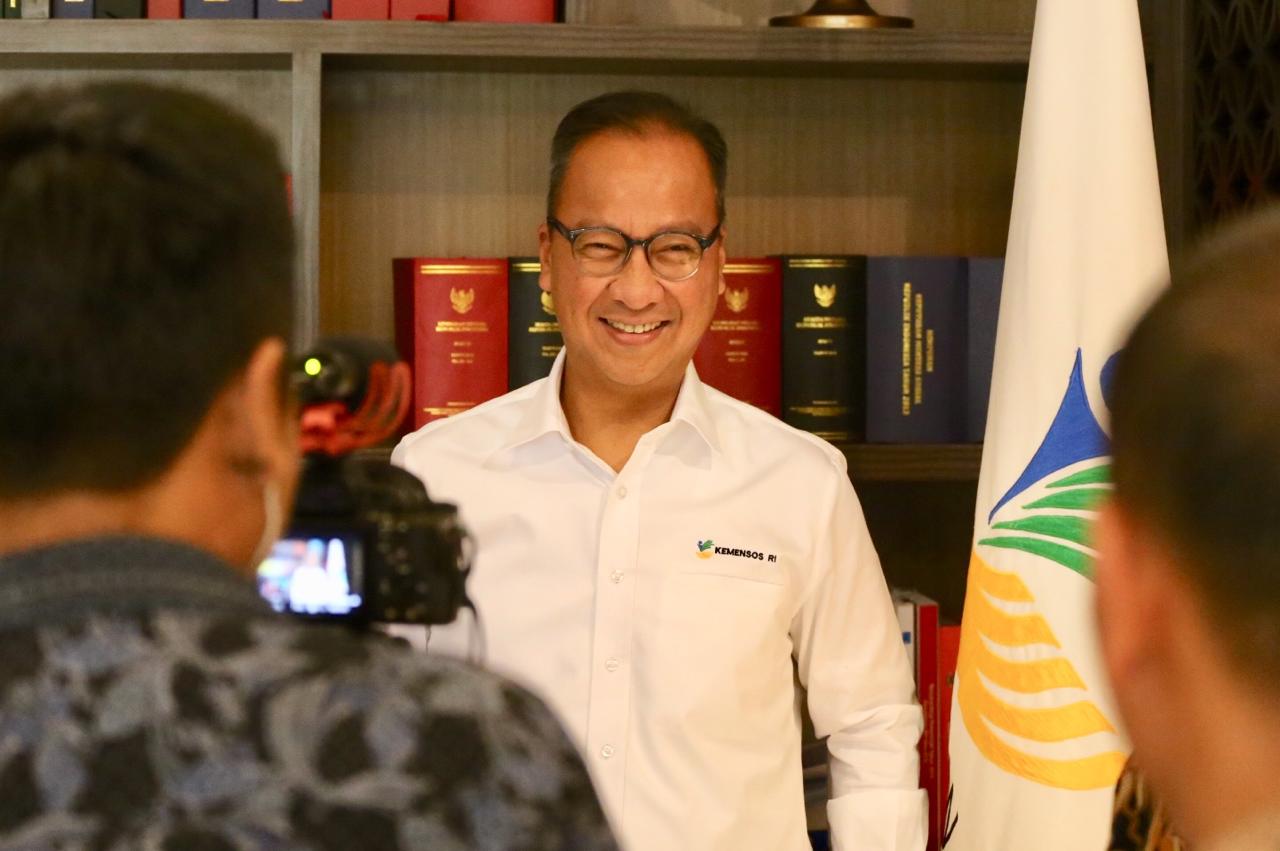JAKARTA (July 5, 2019) - The Minister of Social Affairs Agus Gumiwang Kartasasmita noticed that one of constraint for accelerating in handling social problem is the development of partial, fragmented approach and the presence of authority duplication in some parts.
“As a replacement, now known as Life Cycle approach which prioritized shared responsibility across sector in handling the social problem,” the Social Affairs Minister said in Jakarta, Friday (5/7/2019).
Life cycle approach emphasized on how to be integrated and functionally think and act, so that there is no space for egocentric. "Prioritize four Ministry of Social Affairs function pillars, which is social protection, social empowerment, social rehabilitation and social security,” he said.
The Social Minister adds that the integrated system is also very relevant to be applied in distributing social assistance, with digitalization support of technology system.
The example is through population data system as a device to distribute the social assistance, Universal ID card will be realized in year of 2020-2024. All of public biometric data (fingerprint, iris) are recorded and then being integrated to e-KTP.
“In the future, E-KTP already becomes the only one notification device. If it has applied then all of social assistance will possibly no longer using card and this matter has been discussed in coordination meetings between the central government with local government and Bank Indonesia a few weeks ago,” he adds.
It meant to be an integrated system for digitalized social assistance distribution. Through the single register system in targeting and life cycle framework, the assistance receiver will accept full benefits based on the age starts from pregnant mother, early-age kids, school-age child, adult population until elderly to obtain holistic poverty intervention.
“In turn, this thing will push forward the development of one stop service and the implementation of cashless social assistance,” said the Minister of Social Affairs again.
The Ministry of Social Affairs being faced on the elder population which in this time, had reach 8 million people. If this was being handle by only one working unit, then the budget will not sufficient because of many benefit recipients. Thus, a large amount of budget management is needed.
“It won’t be enough if the program is being handled by The Directorate of Social Rehabilitation for Elders. There has to be a synergy between Echelon II in the Ministry of Social Affairs, for example the Directorate of Social Family Protection through PKH program,” he said again.
The synergy must continue to build so that each unit does not work alone with their own program. PKH Complementarity with other social assistance program is also need to be build.
“Cashless social assistance is not just about the distribution system but also become the instrument of behavioral attitude change and also drive the graduate KPM being independent and prosperous,” said the Minister of Social Affairs again.
Unite Social Companion
Meanwhile connecting to the Human Resource companion, at the moment every Echelon II unit in Directorate General of Social Protection and Assurance has its own companion. For example, PKH with PKH companion, natural disaster with Disaster Preparedness Cadets (TAGANA) and social disaster with Peace Pioneers.
“In the future, it is better to only have one companion, for example social companion,” said the Directorate general of Social Protection and Assurance, Harry Hikmat, when he became the speaker on The Discussion of Strategic Policy Directions, Regulation Structure and Social Ministry Institution in Jakarta, Friday (5/7/2019).
Thus, for the future time, companion recruitment is no longer based on the program approach but based on the ministry.
“In the future, PKH companion not just only handling PKH, but handle another social problem which become the Ministry of Social Affairs’s main goals,” he said.
It is hoped that there will be companion competency specialization, for example like companion with specialization in elder care, child and etc. In addition to integrate the life cycle based-program, The Ministry of Social Affairs also do the renovation of institutional framework.
At this time, the budget for empowerment is still in a small number, which is 1 percent use for Independent Graduation PKH program.
“Therefore, The Ministry of Social Affairs will focus on the empowerment program,” said the Directorate General of Social Protection and Assurance again.
Planning Bureau of The Social Affairs Ministry at this time evaluating on the directorate renovation. In the future, there will be specific on serving economic empowerment and specific handling social participation.
Then, in social rehabilitation aspect, it only become the regulation structure related to the norm, standard, procedure and criteria. Still according to Harry, “Empowerment of the poor, four of directorate general and central information and data are categorized under the poor, then there are the pillar of social protection, social empowerment, social rehabilitation and social security.”
“We agree that the oversized nomenclature for the poor will handle the security net or safety net in the future, if something spectacular happens,” he said.
So, the assistance will be distinguished, if it was Conditional Cash Transfer (CCT) or related with disaster, it will sign into the social protection cluster. Meanwhile the assistance like gas, rice, etc becomes the part of social security.
The social affairs ministry’s policy, now will directed to align with statutory provisions, the regulation structure or policy and institutional directions mean by National Mid-Term Development Plan (RPJMN)
The reduction of poverty and inequality which aim to reduce the burden and increase the poor’s income is one of the government policy’s strategy through RPJMN. ”Strategy of increasing the poor’s income is held by The Ministry of Social Affairs to push that group to the independent graduation phase,” he said.
Independent Graduation means that Beneficiaries (KPM) of Family Hope Program (PKH) is able to cut off from the social assistance program which has been given by the government because it can be independent from economic aspect.
The Head of Public Relations Bureau of the Indonesian Ministry of Social Affairs
Sonny W. Manalu
 Bahasa
Bahasa
 English
English


